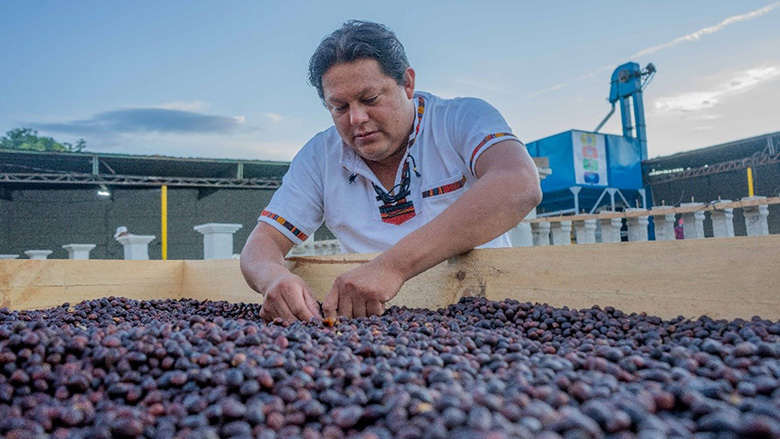Beneficiary Story/Quote
Jimmy Ramírez is the Commercial Manager at Cafés Especiales de El Paraíso (CAFEPSA), a coffee cooperative in Honduras. Project investments helped support improvements to CAFEPSA’s drying and storage facility, and enabled a shift in production to focus on specialty coffee. The cooperative was able to shift from selling unprocessed coffee beans to local traders to selling dried and peeled beans directly to exporters:
“One of our limitations was access to financing, and without a doubt, the Project has helped us with this. Before [the project] we were only able to work with exporters, and we could only obtain credit depending on our income, but now, we do not depend on the exporter, we can go to the bank ourselves. This allows us to buy the coffee from the producers and this has been one of the great achievements of the Business Plan. There is definitely a ‘before the Project’ and ‘after the Project’. Thank you for believing in small producers.”
Challenge
In 2008, 70 percent of Hondurans were poor, and 53 percent were extremely poor, with poverty figures unchanged since 1997. Lack of adequate employment and livelihood opportunities in rural areas drove high emigration rates. Although the Central America Free Trade Agreement (CAFTA) provided opportunities for exports and growth, it also exposed small rural producers (72 percent of all farm units) to a more competitive environment. Additional challenges faced by the economy included shocks affecting the coffee value chain, due to lower international coffee prices and leaf rust disease, as well as prolonged droughts affecting food security. In 2019-2020, the country was also hit hard by the COVID-19 pandemic and by Hurricanes Eta and Iota.
Approach
The development objective of the COMRURAL Project was to contribute to increased productivity and competitiveness among organized rural small-scale agricultural producers through their participation in productive alliances. The project drew on International Development Association (IDA) experience with projects that successfully promoted private sector participation and leveraged the World Bank’s convening power to facilitate the entry of private financial institutions (PFIs) and commercial partners into productive alliances. This paved the way for the promotion of sustainable productive technologies, combined with improved access to markets as an effective strategy for smallholder producers. The use of credit guarantees and matching grants strengthened productive and managerial skills for beneficiaries and improved their bankability. The promotion of technologies such as climate-smart agriculture and good environmental practices reduced risks and promoted value addition. These included: (a) adoption of improved practices by all sampled RPOs, including organic fertilizers (for example, coffee pulp), drought- and disease-resistant seed varieties, drip irrigation techniques and micro greenhouses.
